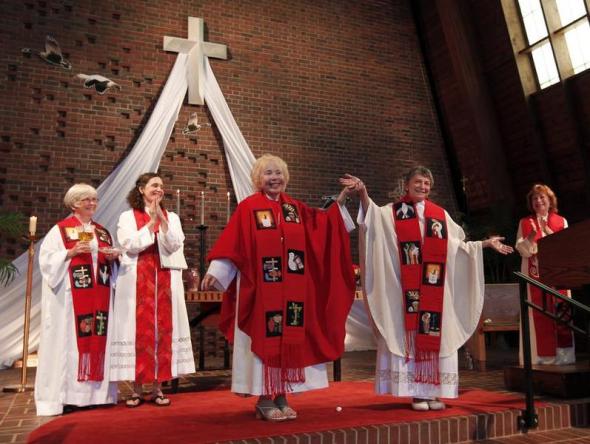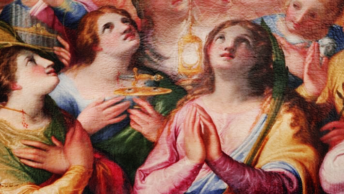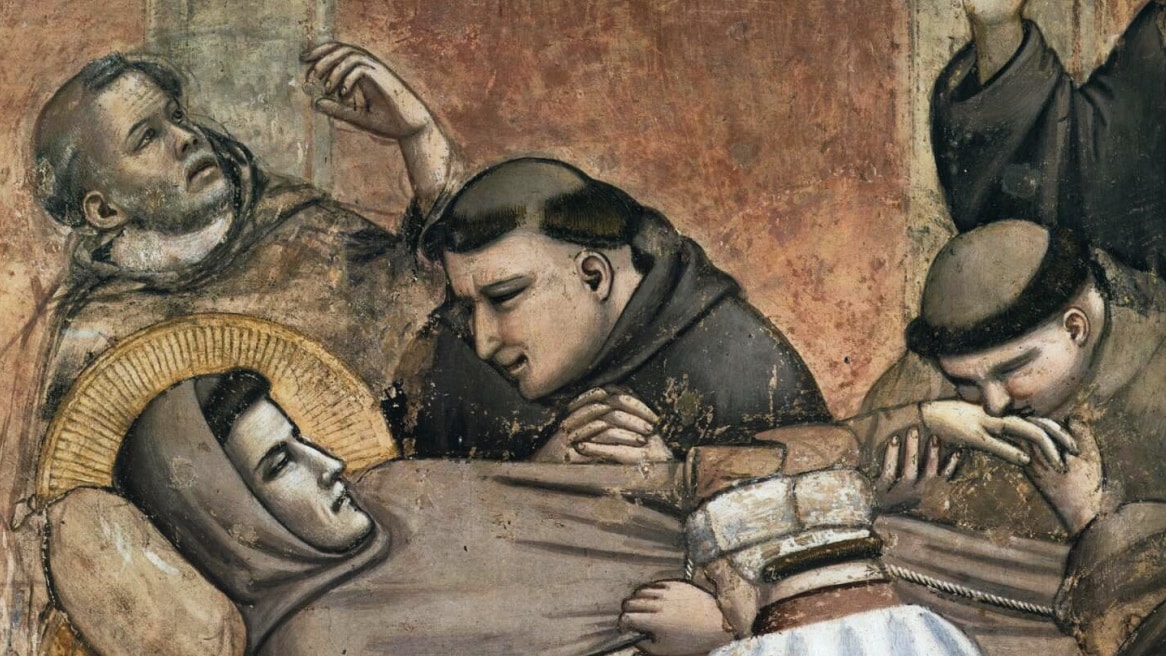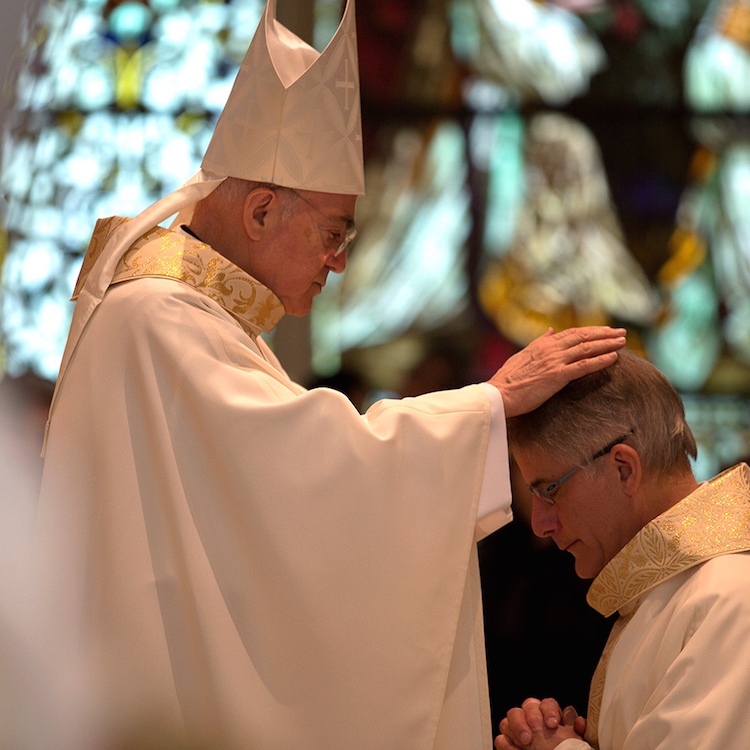
“Kentucky rain keeps pouring down
And up ahead’s another town
That I’ll go walking through
With the rain in my shoes,
Searchin for you
In the cold Kentucky rain,
In the cold Kentucky rain.”
One week before Kentucky Derby Winner Orb’s valiant Run for the Roses at Churchill Downs, tears of joy were shed as “Bishop” Bridget Mary Meehan “ordained” Rosemarie Smead to the priesthood at St. Andrew’s United Church of Christ in Louisville, Kentucky on April 27, 2013. According to a Reuters article, “Father” Smead reflected after the “ordination” ceremony that she is not worried about excommunication.
“It has no sting for me,” said Smead, a petite, gray-haired former Carmelite nun with a ready hug for strangers. “It is a Medieval bullying stick the bishops used to keep control over people and to keep the voices of women silent. I am way beyond letting octogenarian men tell us how to live our lives.”
In an official statement, Louisville Archbishop Joseph E. Kurtz called the planned ceremony by the Association of Roman Catholic Women Priests a “simulated ordination” in opposition to Catholic teaching and noted that such actions carry serious penal sanctions in Church law.
The Catholic Church teaches that it has no authority to allow women to be priests because Jesus Christ chose only men as his apostles whereas proponents of a female priesthood say Jesus was acting only according to the customs of his time.
In May 2011, Fr. Charles Irvin wrote an excellent essay in this journal regarding Holy Orders. There, he notes that there have been many arguments for and against the proposal of ordaining women as priests. “The more popular of them is politically based…because they are constructed on grounds that assume the Church to be an aggregate of like-minded individuals who have voluntarily declared themselves to be Catholic and have individually ‘bought in’ to the overarching presence of the Church throughout human history and in our present world. This view is based on the notion that the Church is a legal and social entity constructed on the polity of human beings, the doctrines of which can be bought or not bought depending upon how we feel about them.” Before presenting three arguments why the Church cannot ordain women, however, Fr. Irvin asks:
“Is the Church from God, or is the Church a human creation?”
Presuming the former, he notes three arguments that have been presented in favor of a male priesthood. The Icon Argument “is based on the notion that the priest is an icon of the Spirit-filled, risen and glorified Christ who was Jesus of Nazareth. This Jesus of Nazareth was, by the power of the Holy Spirit, raised from the dead as the New Adam, the Progenitor of God’s New Creation, the Christ of Glory. Those ordained to stand in the shoes of His apostles are icons of Him, and as icons they must be, to preserve the continuum, males who re-present Him to us in our day and in our time.” The Apostolic Tradition Argument “is based on the notion that the successors to the apostles are bound to transmit, to hand over (tradere), only that which they received from the Apostles themselves…The matter of the Sacrament must be bread and wine; the matter to be ordained to Holy Orders must be male.” Noting that for twenty centuries, the Orthodox and Catholic Church have not ordained women, “a spectacular intervention by the Holy Spirit would be the only event that would overcome these twenty centuries of handing over the constant teaching of the world’s Orthodox and Catholic bishops since Apostolic times.” Lastly, Fr. Irvin describes the Sovereign Will of Christ Argument as perhaps the most compelling. He notes that “Jesus Christ lived, acted, and taught in His sovereign and free will without any constraint other than to do His Father’s will. No human, cultural, historical, or other constraint found in God’s creation, even the laws of nature, bound Him. He was bound by nothing whatsoever. Even His death was freely chosen, not imposed. What, then, of the allegation that He was restrained by cultural conditioning? The answer is, of course, He wasn’t.”
In returning to the “ordination” ceremony, it is said that “Smead wept openly as nearly everyone in the audience came up and laid their hands on her head in blessing.” Among the two-hundred persons in attendance, some whispered, “Thanks for doing this for us.” During the elevation of the Eucharist, another person exclaimed: “Girl, lift those plates. I’ve been waiting a long time for this.”
At last report, amidst tears of joy, she will be organizing a new “Catholic” parish.
In the cold Kentucky rain.







